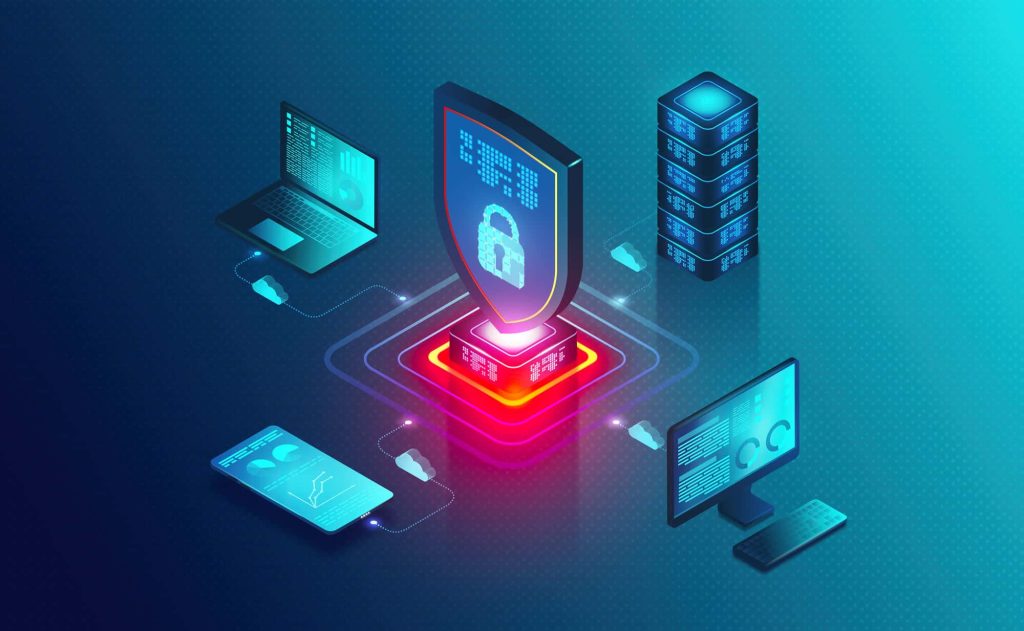I. Introduction

Cybersecurity has become a critical issue in our increasingly digital world. With the rise of cyber threats and attacks, organizations and individuals alike are recognizing the growing significance of protecting their sensitive information from unauthorized access. This has led to a surge in demand for cybersecurity professionals.
At the forefront of cybersecurity defense are cybersecurity engineers. These individuals play a crucial role in protecting computer systems, networks, and data from potential threats. In this blog post, we will explore the role of a cybersecurity engineer and delve into the education, skills, certifications, and training required to excel in this field.
II. Education and Skills
A. Pursuing a Degree in Cybersecurity or Related Field
To embark on a career as a cybersecurity engineer, a strong educational foundation is essential. Many academic institutions now offer cybersecurity programs that equip students with the necessary knowledge and skills to tackle cybersecurity challenges. These programs often cover a wide range of topics including network security, cryptography, intrusion detection, digital forensics, and risk management.
When researching potential academic institutions, it is important to consider their accreditation and reputation. Look for programs that are recognized by organizations such as the National Security Agency (NSA) and the Committee on National Security Systems (CNSS). Additionally, consider the faculty’s expertise and the availability of hands-on learning opportunities, such as internships or cooperative education programs.
Within the field of cybersecurity, there are also various specializations that students can consider. These specializations include but are not limited to:
- Network Security: Focuses on securing computer networks against unauthorized access and attacks.
- Cryptography: Involves the study of encryption and decryption techniques to protect data.
- Digital Forensics: Focuses on investigating and analyzing electronic devices for digital evidence in legal cases.
- Penetration Testing: Involves actively testing computer systems and networks for vulnerabilities to identify potential security risks.
B. Gaining Foundational Knowledge and Skillsets
In addition to a formal education, aspiring cybersecurity engineers should strive to acquire foundational knowledge and skillsets that are crucial for success in the field.
- Understanding Programming Languages and Databases: Proficiency in programming languages such as Python, Java, and C++ is essential for analyzing and securing software and systems. Additionally, familiarity with databases, such as SQL and NoSQL, is important for managing and protecting sensitive data.
- Familiarity with Networking Protocols and Systems: A strong understanding of networking protocols, such as TCP/IP and DNS, is crucial for identifying potential network vulnerabilities and securing data transmission. Knowledge of firewalls, routers, and other networking devices is also important.
- Learning about Operating Systems and Hardware Components: An understanding of various operating systems, such as Windows, Linux, and macOS, is essential for securing and protecting computer systems. Additionally, knowledge of hardware components helps in identifying potential vulnerabilities and ensuring system integrity.
III. Certifications and Training

A. Industry-Recognized Certifications for Cybersecurity Professionals
To enhance their skills and knowledge, cybersecurity professionals often pursue industry-recognized certifications. These certifications demonstrate a commitment to continuous learning and provide validation of expertise in specific areas of cybersecurity. Here are a few notable certifications:
- Certified Information Systems Security Professional (CISSP): Offered by (ISC)², CISSP is a globally recognized certification that validates an individual’s expertise in designing, implementing, and managing a cybersecurity program.
- Certified Ethical Hacker (CEH): Offered by the International Council of Electronic Commerce Consultants (EC-Council), CEH certifies individuals who are skilled in identifying vulnerabilities and weaknesses in systems and networks. This certification is particularly valuable for professionals specializing in penetration testing or ethical hacking.
- Offensive Security Certified Professional (OSCP): Offered by Offensive Security, OSCP is a hands-on certification that validates the practical skills of cybersecurity professionals in identifying and exploiting vulnerabilities in target systems.
B. Participating in Cybersecurity Training Programs

In addition to certifications, participating in cybersecurity training programs can greatly enhance an individual’s knowledge and skills. These programs often provide practical, hands-on experience and can be tailored to different needs and skill levels. Some popular options for cybersecurity training include:
- Online Platforms Offering Cybersecurity Courses: Platforms like Coursera, Udemy, and Cybrary offer a wide variety of cybersecurity courses ranging from introductory to advanced levels. These courses cover various topics such as network security, ethical hacking, cryptography, and incident response.
-
Practical Hands-On Training through Workshops and Boot Camps: Many organizations and training providers offer workshops and boot camps that focus on specific areas of cybersecurity. These programs provide participants with the opportunity to gain practical experience by simulating real-world scenarios and working on hands-on projects.
IV. Gaining Experience
Gaining practical experience is essential for cybersecurity professionals. It allows them to apply their knowledge and skills in real-world scenarios and enhances their understanding of the field. In this section, we will explore avenues for gaining experience in cybersecurity.
A. Seeking internships and entry-level positions

- Internship opportunities with cybersecurity organizations
Internships provide valuable hands-on experience and the opportunity to work alongside experienced professionals in the cybersecurity industry. Many cybersecurity organizations offer internships for students and recent graduates. These internships often involve tasks such as vulnerability assessments, security audits, and incident response. Applying for internships can help individuals gain exposure to different areas of cybersecurity and build networks within the industry.
- Entry-level roles for cybersecurity professionals
Entry-level positions in cybersecurity are an excellent way to start gaining experience in the field. These roles may include security analysts, security administrators, or junior penetration testers. Entry-level professionals often work under the guidance of senior team members, allowing them to learn from experienced mentors. These positions provide opportunities to develop technical skills and gain a deeper understanding of cybersecurity operations.
B. Developing practical skills through projects and challenges
- Creating your own cybersecurity projects
Creating your own cybersecurity projects is an effective way to gain practical experience. Individuals can identify areas of interest within cybersecurity, such as network security, web application security, or digital forensics, and develop projects focused on those areas. This could involve designing and implementing a secure network architecture, developing a secure web application, or performing a forensic analysis of a compromised system. These projects demonstrate initiative and the ability to apply technical skills in practical situations.
- Participating in cybersecurity competitions and capture the flag events
Cybersecurity competitions and capture the flag (CTF) events provide a platform for individuals to test and improve their skills. These events often involve solving challenges related to cryptography, reverse engineering, network analysis, and vulnerability exploitation. Participants work in teams or individually to solve these challenges within a specified timeframe. Competitions and CTF events not only offer the opportunity to gain hands-on experience but also provide a chance to network with other cybersecurity professionals.
In conclusion, gaining experience in cybersecurity involves seeking internships and entry-level positions, developing practical skills through projects and challenges, continuous learning and professional development, and engaging in collaboration and networking. By actively seeking opportunities to apply their knowledge and skills, staying updated with emerging trends, pursuing advanced certifications, and networking with industry professionals, individuals can build a successful career in cybersecurity and contribute to the protection of sensitive data and systems.



